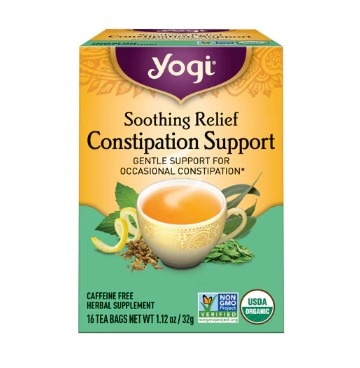So many of us have been there – it’s the dream vacationor that important work trip, and digestion gets all messed up. It’s hard to enjoy a trip when you just want to curl up in a fetal position or need to find a bathroom urgently! Why does this happen? We’ll break down what causes stomach problems when traveling and tips to avoid these triggers to have a smooth trip where the bathroom isn’t the primary destination of the day.
What Causes Stomach Problems When Traveling?
In one study, a shocking 79% of travelers abroad reported illnesses during a trip! Another study showed that most minor travel-related tummy troubles stem from constipation2 due to a change in schedule – food, movement, sleep and other routines being thrown off. Constipation often leads to other gastrointestinal (GI) symptoms like reflux, nausea, fullness, bloating or gas that people may not realize are connected. Also, nerves, stress or eating unique foods can flare up diarrhea or other symptoms. People with existing GI problems are more prone to these triggers and may benefit from meeting with a Registered Dietitian to map out a personalized travel plan.
It might not be just one trigger that sets off symptoms but a compilation of smaller triggers that add up. There can be a slew of causes when traveling, depending on the situation and person:
Diet changes
The type of food or drink, quantity and frequency can be very different when away from home. Are there more desserts, snacks, spicy foods or high fat foods? Do meals have less fiber, fruits or vegetables? Are the meals larger or different? Are meals being skipped or eaten late at night? Even healthy snack bars can have too much fiber, which can cause problems too!
Think about drinks, too! Carbonated drinks can cause bloating, gas or reflux. Dehydration, leading to constipation, can be an issue due to trying to limit bathroom breaks or forgotten water bottles. Is more alcohol being consumed?
Shared bathrooms
Most people do not love going to the bathroom in public or shared restrooms…we’ve all felt that awkward hotel room moment. This can cause people to hold their bowels, leading to constipation or incomplete bowel movements (also causing constipation or more bathroom breaks).
Stress
Since there is a strong connection between the gut and the brain (known as the gut-brain axis), any stress of packing, traveling or being on-the-go can flare up GI symptoms.
Sitting
Travel can lead to less exercise, which can slow the bowels causing constipation and bloating.
Sleep changes
Changes in one’s sleep routine not only throws off meals, but other body functions like digestion, that also rely on the body’s internal clock. Thus, traveling to a different time zone or staying up late can easily lead to constipation2.
Motion sickness
It’s easy to forget to be prepared for potential nausea and vomiting from boats, cruises, or car rides on winding roads.
Traveler’s diarrhea
This is the most common illness when traveling to certain parts of the world where food and drinks have a higher risk of containing bacteria or other germs that cause illness.1
Tummy Soothing Travel Tips
Some symptom triggers when traveling are bound to happen. Even if unsure what causes stomach problems when away, try these tips for better travel routines:
Food routine
It’s hard to keep to a normal schedule on trips but try to stick to some routine in meal timing, food types and fiber. Avoid skipping too many meals and aim to eat at least three times a day (start with breakfast), or more if needed. Restaurant meals tend to be richer in fat while lower in fiber. Opt for meals lower in fat and balanced with more vegetables, fruits and whole grains when possible.
Pro tip: To prevent constipation, travel with convenient sources of fiber to have daily with breakfast such as prunes or other dried fruit, mini cans of prune juice, oatmeal, chia seeds, fiber wafers or other high fiber foods. If traveling to a different culture, research where to buy foods that may help keep a routine.
Fluid routine
Always pack a water bottle, even if it means more bathroom breaks. Be mindful of alcohol, carbonated drinks or other fluids that might be linked to symptoms.
Bathroom routine
Consider having adequate time and find a private location for bathroom business. Set aside time to relax and have a morning routine (the most common time for bowel movements). Go when the body urges, instead of holding it. A more squat-like body position helps release the bowels better.
Movement routine
While it may be no problem getting high step counts while sight-seeing, other trips are prone to sitting too long. Aim for enjoyable movement every day to help move stools and gas.
Medications or supplements
Remember to bring any medications or supplements needed. It is not always easy to get these in other places. Plan for the unexpected. If prone to GI issues, talk with a healthcare provider about what to bring.
- If constipation is what causes stomach problems, it is important to get in front of it. It’s easier to prevent than treat. Test out a gentle laxative (such as polyethylene glycol 3350) or fiber supplement (such as psyllium or Sunfiber®) before the trip to ensure it works for you. Try starting it up to a week before travel and use daily throughout the trip to keep things moving.
- If diarrhea is the issue, a soluble fiber supplement may help such as Sunfiber®, psyllium or wheat dextrin.
Food safety
Using safe food practices are important anytime to prevent illness. If traveling abroad to a high risk area, take extra safeguards against Traveler’s Diarrhea which has been shown to affect 68% of people.
While not everything can be predicted when traveling, one can be prepared. Consider potential triggers and assess what causes stomach problems for you. Add a few of these tips or products to a packing list for a smoother trip. To get more personalized nutrition guidance, like how to find the right fiber supplement or tailor a travel plan around GI issues, schedule a virtual nutrition counseling appointment with a Kroger Health Registered Dietitian, our nutrition experts.




